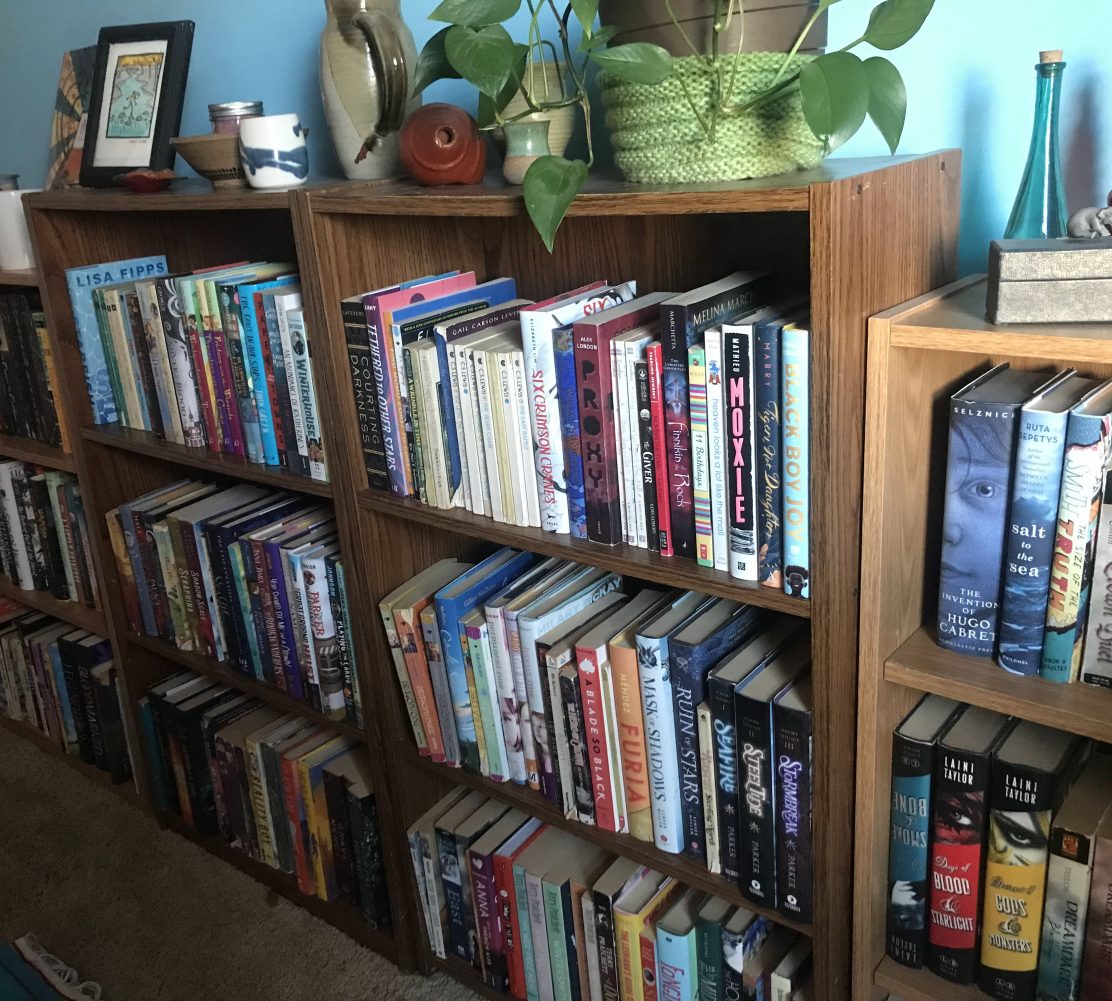by T. J. Klune
Support your local independent bookstore: buy it there!
Review copy provided by the publisher
Release date: April 25, 2023
Content: There are a couple of swear words, including one or two f-bombs, plus some sexual humor. It will be in the Science Fiction/Fantasy section of the bookstore.
This is one that I feel like the less you know, the better off you are. The basic premise is this: Vic is a human who is living with robots – his father, an anxious vacuum, and a sadistic nurse robot (trust me) – in the forest. One day, he discovers an android, fixes it, and brings it back online. It has a connection to Vic’s father (who is, yes, an android) which changes the course of Vic’s life.
What really drives this book is the characters. Yes, the plot is loosely based on The Adventures of Pinocchio (the book, not the Disney movie), but it’s the characters that drive the story. We got a couple of copies to pass around the store, and we kept reading passages about Rambo the vacuum and Nurse Rached aloud to each other. We started a text thread of quotes. We laughed a LOT. But it’s more than that, too. Klune is meditating on the purpose of humanity, whether we – with all our negatives – are actually worth being alive. And if we are worth it, what is that worth.
Also, know that I sobbed for the last 50 pages of the book. Klune pulled me into his world and I felt every bit of it. Heartbreak, love, humor, betrayal, acceptance, and loss.
I have been positively ruined for other books for a while. You will absolutely want to read this when it comes out in April.










